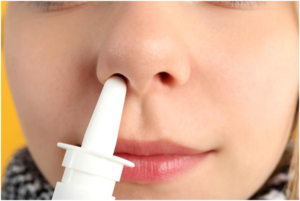Ever woken up after a long nap with a nagging scratch at the back of your throat? Or perhaps felt a lingering odour in your mouth despite diligent brushing?
You might be dealing with the side effects of tonsil stones.
These tiny, often overlooked formations can cause discomfort and even contribute to bad breath. But what exactly are tonsil stones, and how can you address them?
Understanding Tonsil Stones
Tonsil stones, also known as tonsilloliths, are small, hardened formations.
These stones are typically small and whitish-yellow in appearance, and they tend to develop within the crevices and pockets (crypts) of your tonsils.
What Are Tonsil Stones Made Of?
Tonsil stones are primarily composed of hardened minerals, like calcium, mixed with food debris, bacteria, and other materials that get trapped in the tonsils.
How to Know if You Have Tonsil Stones

Can’t spot any white clumps at the back of your throat but still suspect you might have tonsil stones?
While visible formations are a common sign, they are not the only indicator. Some common and less frequent symptoms that could indicate these bothersome formations include:
- Persistent bad breath: This is often the most noticeable and bothersome symptom, caused by the bacteria trapped within the stones releasing unpleasant odours.
- Sore throat or discomfort: Tonsil stones can irritate and inflame the surrounding tissues, causing a persistent sore throat or discomfort.
In addition to these common signs, tonsil stones can also cause less frequent but equally bothersome symptoms:
- Ear pain: The close proximity of the tonsils to the ear canals can sometimes result in referred pain or an earache when tonsil stones are present.
- Difficulty swallowing: Larger or multiple tonsil stones may obstruct the throat, causing difficulty or discomfort when swallowing.
- Metallic taste in the mouth: The bacteria and debris trapped within the stones can leave an unpleasant metallic taste.
- Visible white or yellow spots on tonsils: While not always visible, sometimes you might notice small, white or yellow formations on your tonsils.
If you are experiencing persistent bad breath or a combination of these symptoms, it is recommended to consult with a healthcare professional or dentist. They can properly diagnose the issue and discuss appropriate management or treatment options.
What Are Tonsil Stones Caused By?
Now, have you ever wondered why some people get tonsil stones in the first place? The answer lies in the structure of our tonsils and certain predisposing factors.
The tonsils, those two small masses at the back of your throat, are part of your immune system, acting as a first line of defence against bacteria and other invaders. However, as mentioned, they also have tiny crevices called crypts, which can sometimes trap debris like food particles, bacteria, and dead cells. Over time, this trapped material can harden and calcify, forming the infamous tonsil stones.
Several factors can increase your susceptibility to tonsil stones.
- Frequent tonsillitis: Repeated inflammation of the tonsils can irritate the crypts and make them more likely to harbour debris.
- Large tonsillar crypts: Having naturally larger or deeper crypts in the tonsils makes it easier for debris to get trapped and stones to form.
- Inadequate oral hygiene: Neglecting regular brushing and flossing can create a place where bacteria thrive, increasing the likelihood of debris getting trapped in the tonsils and leading to stone formation.
- Dry mouth: Saliva helps wash away debris from the tonsils, but this natural cleaning process can be less effective if the mouth is dry.
- Certain foods: For some people, dairy products or other sticky foods can contribute to tonsil stones.
How to Remove Tonsil Stones?
Do tonsil stones go away on their own? Yes, they often dislodge naturally. But what if they persist, causing discomfort or bad breath? Here are a few methods to explore to address the situation:
Use of a Low-pressure Irrigator
A water flosser or similar low-pressure irrigator can help dislodge tonsil stones. However, exercise caution, as dislodged stones might cause coughing.
Rinse with Antiseptic Mouthwash
Regularly rinsing with an alcohol-free antiseptic mouthwash can help dislodge existing tonsil stones and reduce bacteria in your mouth. A lower bacterial count means less debris is likely to get trapped in your tonsils, potentially preventing future stones from forming.
For a proactive approach to oral hygiene and fresher breath, consider incorporating a bad breath mouthwash like the ACESS SOLUTION into your routine. This diluted medicated mouthwash, infused with myrrh, actively combats odour-causing bacteria and promotes long-term oral health.
Salt Water Gargle
A simple salt water gargle can help loosen tonsil stones and soothe any throat irritation. Dissolve some salt in a cup of warm water and gargle the solution, repeating as needed.
Apple Cider Vinegar Gargle
Gargling with diluted apple cider vinegar may help break down and dislodge tonsil stones due to its acidic nature. However, be mindful that apple cider vinegar is acidic and can affect tooth enamel, so rinse your mouth with water afterwards.
Manual Removal with Cotton Swabs
While some individuals attempt to dislodge tonsil stones using a damp cotton swab, it is important to proceed with extreme caution. The tonsil area is delicate and rich in blood vessels, so it is crucial to use gentle pressure and avoid excessive force. If any bleeding occurs, stop immediately.
Natural Expulsion Through Coughing
Sometimes, a forceful cough can be enough to dislodge a tonsil stone. This is a less invasive option and may be worth trying before resorting to manual removal. You can try gargling with salt water first to help loosen the stone before attempting a series of strong coughs.
How To Prevent Tonsil Stones
Prevention is also key when it comes to tonsil stones. While we can’t completely eliminate the risk, adopting healthy oral hygiene habits and making some lifestyle changes can go a long way in minimising their occurrence.
- Oral hygiene practices: Brushing your teeth at least twice daily with a quality toothpaste, like ACESS Japanese toothpaste, and flossing daily help remove food particles that can contribute to stone formation. Additionally, consider using a tongue scraper or brushing your tongue to further reduce bacteria in your mouth.
- Dietary considerations and hydration: Drinking plenty of water can help wash away debris and maintain saliva production, which naturally cleanses the mouth and throat. It is also wise to limit sugary and processed foods, as these can promote bacterial growth.
- Prioritise regular dental visits: Routine dental appointments are crucial for overall oral health and can play a crucial role in preventing tonsil stones. In fact, your dentist can provide thorough cleanings to remove any hidden debris and offer personalised guidance on preserving your oral well-being.
While tonsil stones can be a nuisance, they’re often manageable with consistent oral hygiene practices and healthy lifestyle choices. By understanding the factors that contribute to their formation and adopting preventative measures, you can reduce the likelihood of developing tonsil stones and the associated discomfort they bring.




